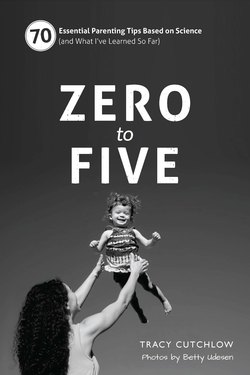Читать книгу Zero to Five - Tracy Cutchlow - Страница 17
На сайте Литреса книга снята с продажи.
ОглавлениеKnow you can’t truly be prepared
You’re going to be clueless, and that’s OK.
Having a baby is a culture shock. As much time as you spent planning for this, it all becomes real quite suddenly. You don’t speak baby’s language; you’re not sure what she’s trying to tell you. You feel incompetent when it comes to the most basic things, like how much this little human needs to eat or how she wants to sleep. You’ve never been in such close contact with spit-up, drool, pee, and poop—things you’d previously tried to avoid. You barely recognize your house, as cleaning falls to the wayside and baby stuff piles up. Your senses become heightened: you start to hear baby’s cries when there are none, or you bolt upright in bed with the urge to make sure baby’s still alive. Time ceases to have meaning. When baby cries inconsolably, minutes feel like hours. When you look into baby’s eyes, cuddle, and kiss baby’s soft skin, hours feel like minutes.
It’s an adventure, and generally you feel up for it. Plus, baby sleeps a ton at first, giving you a little time to adjust.
However, many first-time parents also face an additional challenge that hits hard. It could be postpartum depression. It could be that baby is colicky, or underweight, or not latching at the breast, or premature. It could be that you’re an ambitious person and haven’t yet figured out that you’re trying to do too much. For my husband and me, it was sleep deprivation.
Feeding baby was taking two hours—and you’re supposed to feed a newborn at least every three hours. I wasn’t producing much milk, but I didn’t want to give up on breastfeeding. So the hospital had us taping a tiny tube to my breast, and passing milk through it using a syringe. That way, baby was still “nursing.” Getting this tube to stay in place and getting baby to latch was indescribably time-consuming and frustrating. If baby let go, we’d have to start all over. Then switch breasts. Then I’d use a breast pump. Then my husband would sterilize all the equipment. We were reeling from lack of sleep.
My husband and I rarely fight, but suddenly we were arguing over critical things like whether the phrase “Don’t cry over spilled milk” referred to the child or the mother. Emotions ran high or low, nothing in between. I remember walking down the street in broad daylight and bursting into tears. My husband blurted out, “Where are the joys of parenthood?” Within ten days, we ditched the syringe, switched to bottles, I pumped less often, and we caught up on sleep.
Gradually, we defined, then accepted, then embraced, our new normal as parents. Soon enough, we felt like we were getting the hang of things. And you will, too.
Not that parenting will suddenly become easy. With a baby, just about every day has highs and lows. Woven throughout moments of frustration, anxiety, and exhaustion are moments of such immense joy, strength, determination, humor, and love. These blissful times more than erase the hard ones.
I remember one sunny day when my baby was 7 or 8 months old. Walking through a beautiful forested park, I told her how the leaves had fallen from the trees. I sat in a swing with her facing me in my lap, and as we swung, she leaned against my chest and smiled a supremely content little smile. This made such happiness well up inside me that I laughed out loud, hugged her to me, and said, “I love you so much!”
Moments like these come from a deep connection with a person. You can feel it with friends or lovers occasionally, but with a child you get to feel it several times a day in such a pure sense. It makes you realize that’s what’s most important in life—our connections as humans.
Maybe this is why veteran parents forget to tell us first-timers how hard parenting can be. If so, it’s a pretty good reason.
